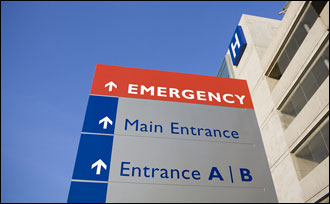Nexium Cancer
Information from Nexium Attorneys | Nexium Cancer Lawsuits
Nexium Heartburn and Acid-Reflux Medicine

Nexium is used to treat many different acid-related disorders including heartburn, gastro-intestinal reflux disease (GERD), and other gastric problems. In wide use around the world, Nexium is classed as a proton-pump inhibitor (PPI), which works by blocking the stomach’s production of acid.
Nexium, which is manufactured by the Japanese Takeda Pharmaceuticals, comes in both prescription and over the counter forms. The most used drug class in America, annual sales of PPIs exceed $10 billion.
For the past two decades, drugs such as Nexium have been regarded as generally safe for long term use. Studies published in 2017 and 2018 reveal otherwise: using the drug consistently over an extended period of time can result in a risk for Nexium cancer of the stomach, esophagus, or liver.
Nexium and Cancer
Approved by the FDA in 2001, Nexium was sold to the American public for more than fifteen years before consumers were warned of the Nexium cancer risk. The particular means by which Nexium and other PPIs work is by blocking the production of stomach acid at the site of the proton pump. Researchers believe it is precisely the blocking of stomach acid that results in the risk of stomach cancer from Nexium.
Within the stomach, digestion starts with the release of gastrin, a hormone that signals the stomach to pump acid. Nexium blocks the pump from releasing stomach acid, which reduces the symptoms of GERD, acid reflux, and heartburn. However, when no acid is pumped, the body releases more of the hormone gastrin. Too much gastrin puts patients at risk for developing gastrointestinal tumors from Nexium.
There is a widespread belief that PPIs such as Nexium are prescribed too often, due to misdiagnosis. The implication of overprescribing PPIs is that thousands of patients have been exposed to the risk of developing Nexium cancer when a safer alternative was likely available.
Nexium Cancer Research
In 2017 and 2018, researchers from Hong Kong and Sweden released separate studies which both showed a link between Nexium and cancer. Researchers at the University of Hong Kong tracked 60,000 patients taking Nexium or another PPI and found that taking Nexium more than doubles a patient’s risk for stomach cancer, liver cancer, and esophageal cancer. The Swedish Nexium cancer research came to a similar conclusion.
Failure to Warn: Nexium Cancer Risk
Through no fault of their own and with no warning of the danger, millions of Americans have been exposed to a risk for Nexium cancer since 2001. As the manufacturer of the product, Astra-Zeneca knew or should have known of the danger of Nexium cancer and had a clear duty to warn consumers of this deadly risk.
With an annual revenue of over $22 billion last year, Astra Zeneca has not only the responsibility but ample resources at its disposal to test for product dangers and warn the consumers of drug risks. Astra Zeneca must be held accountable for its failure to warn Americans of the risk for gastrointestinal cancer from Nexium.

Nexium Cancer FAQ
Compiled by our Nexium cancer attorney team, this section provides answers to frequently-asked questions about filing a Nexium cancer lawsuit for stomach cancer, esophageal cancer, or liver cancer. If, after reading through this list of common Nexium cancer questions and answers, you still have questions, our attorneys are always available to discuss your circumstances. Our attorneys handling Nexium cancer claims are now offering free, no obligation case review.
Does Nexium cause cancer?
In short, yes, Nexium does cause cancer. Studies published in 2017 and 2018 from Hong Kong and Sweden have independently confirmed findings that Nexium causes cancer. Experts believe that Nexium’s method of blocking the body’s natural production of stomach acid results in unnaturally high hormone levels. It is this hormone, gastrin, that in excess results in a risk for Nexium cancer.
What kinds of cancer does Nexium cause?
Nexium cancer includes three forms of gastrointestinal cancer: stomach cancer, esophageal cancer, and liver cancer.
When did Astra-Zeneca learn of the danger for cancer from Nexium?
At this time, it is unknown whether Astra-Zeneca was previously aware of the Nexium cancer link prior to the publication of international scientific studies in 2017. What is most important is that the drug company has a responsibility to warn consumers of any risks associated with its products. Astra-Zeneca knew or should have known of the risk, and should have warned consumers and medical providers long ago. Nexium cancer lawsuits allege failure to warn on the part of Astra-Zeneca.
Who can file a lawsuit for Nexium cancer?
Any person or family members of a person who was diagnosed with liver cancer, stomach cancer, or esophageal cancer and has a history of taking Nexium may be eligible to file a Nexium cancer lawsuit. Nexium cancer lawsuits may result in significant compensation for pain, suffering, lost income, medical expenses and other losses associated with Nexium cancer.



